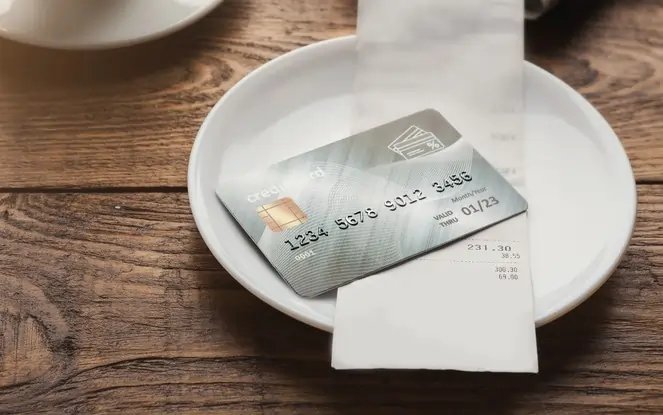How to Control Your Credit Card Expenses
Published by Jessica Weisman-Pitts
Posted on September 20, 2024
4 min readLast updated: January 29, 2026

Published by Jessica Weisman-Pitts
Posted on September 20, 2024
4 min readLast updated: January 29, 2026

Credit cards can be useful for managing finances. However, uncontrolled spending can lead to debt. Understand how you can manage your credit card expenses.
Set a budget to track your income and expenses. Allocate a specific amount for credit card spending and stick to it. For example, if you earn ₹50,000 monthly, allocate ₹10,000 for credit card use. This prevents overspending and ensures you have funds for savings and other expenses.
Use online apps to track spending in real-time. Monitoring expenses helps avoid overspending. Regular checks reveal unnecessary costs. Identify and reduce excessive spending, like dining out, to save money.
Credit card issuers offer alerts and notifications. Set up alerts for due dates and spending limits to stay informed. Alerts help avoid late fees by notifying you when payments are due or limits are reached. This improves your financial management.
Pay your credit card balance in full each month to avoid interest charges and manage debt. If full payment isn’t possible, pay as much as you can. Paying only the minimum adds interest and increases your debt. For example, paying a ₹5,000 bill in full avoids extra interest charges.
Avoid cash advances due to high fees and interest rates. Use your debit card for withdrawals instead. Cash advances accrue interest immediately and can be costly. For example, withdrawing ₹10,000 as a cash advance could incur high interest and fees.
Having many credit cards can lead to overspending. Limit the number of credit cards you use. This simplifies tracking expenses and avoids higher debt. Managing multiple cards can complicate finances and increase debt.
Choose a credit card that meets your needs. Look for low interest rates and no annual fees. On financial marketplaces like Bajaj Markets compare different credit card options. The right card saves money on interest and fees. A card with no annual fee and low interest may be preferred for daily use.
Your credit score affects interest rates. Check it regularly using the Bajaj Markets App. A good score can lead to better rates. Pay bills on time and reduce debt to improve your score. This can result in better loan offers.
Set up automatic payments to avoid late fees and ensure timely bill payments. Automatic payments provide peace of mind and maintain a good payment history. For example, setting up automatic payments for a ₹5,000 bill avoids late fees.
Some credit cards offer reward points. Use these points wisely. Redeem your points for items you need. Reward points can be beneficial if used correctly. For example, if you have 10,000 points, redeem them for a necessary purchase. Buying groceries with these points can save you money.
Avoid impulse purchases by asking yourself if you need the item. Stick to your budget and avoid unnecessary expenses. Impulse purchases can quickly derail your budget. For instance, buying a ₹3,000 gadget on a whim adds to your debt and may not be necessary.
Review your credit card statements monthly. Check for errors or unauthorised charges. Report any issues immediately. This helps catch fraud early and avoid unnecessary payments.
Set financial goals to stay motivated. Focus on your spending and saving habits. Goals provide clear targets. Additionally, setting smaller, short-term goals, like saving ₹5,000 each month, can make your larger objectives seem more achievable and keep you on track. Regularly reviewing and adjusting your goals ensures they remain relevant and aligned with your financial situation. This practice helps you stay disciplined and avoid impulsive purchases that can derail your progress.
An emergency fund covers unexpected expenses, reducing credit card use. Aim to save three to six months‘ worth of expenses. This financial cushion can cover medical bills or urgent repairs, preventing additional debt. Additionally, having an emergency fund ensures you can handle sudden job loss or significant lifestyle changes without resorting to high-interest credit card debt.
Paying only the minimum amount increases your debt. Always try to pay more than the minimum. This reduces your balance faster. Minimum payments often cover only interest, not the principal. For instance, paying only ₹500 on a ₹5,000 bill means the remaining balance accrues more interest.
Managing credit card expenses takes discipline and planning. By following these tips, you can keep your spending under control. Online budgeting apps to stay on track. Remember, responsible credit card use could improve your financial health.
A credit card is a payment card that allows the cardholder to borrow funds from a pre-approved limit to pay for goods and services.
A budget is a financial plan that outlines expected income and expenses over a specific period, helping individuals manage their finances.
A credit score is a numerical representation of a person's creditworthiness, based on their credit history and financial behavior.
Reward points are incentives offered by credit card companies for purchases made with the card, which can be redeemed for various benefits.
An emergency fund is a savings account set aside for unexpected expenses, providing financial security during emergencies.
Explore more articles in the Finance category
